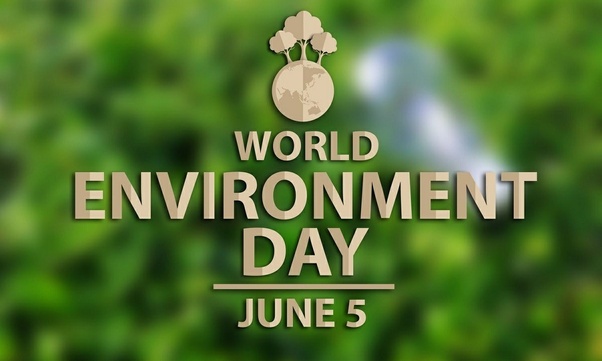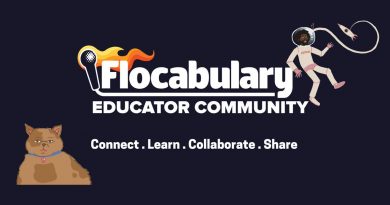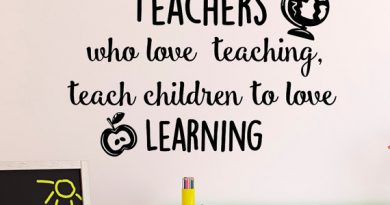5th June- World Environment Day – Classroom resources & Transversal elements for the English class.
5th June- World Environment Day – Classroom resources & Transversal elements for the English class.
Green schools initiative: Earth Day ideas and activities.
Source: https://www.youtube.com/watch?v=3kaEEmkQU5A
#byjusfortheenvironment #savetheenvironment #beatplasticpollution
World Environment Day at BYJU`s
#trees #worldenvironmentday #environment #projectbasedlearning #englishlearning #instateachers #oposicion #oposito #learnenglish #storytime #knowledge #readingtime #roadtoyourpost #news #goldenopportunity #society #people #noticias #uk #usa #opositandoytrabajando #docente #docentes #oposicionesingles #empowerment #kids #children #education #teacherproblems #opogram
Follow us: https://www.facebook.com/OposicionesInglesRP/
www.oposicionesingles.com
There is no doubt that the students must develop the capacities allowing them to favour working habits, showing responsibility and self-confidence in their work. Additionally, they will practise coexistence values and social abilities, together with transversal elements like road safety education and environmental care. Moreover, the knowledge of the different subjects will enhance their interest and creativity in learning, developing critical attitudes and personal.
A key issue that has been previously highlighted is that the main goal to be attained in our FL learners is the acquisition of a certain degree of communicative competence; that is to enable the learner to communicate through oral and written means. We, as FL teachers, should be aware of the different learning theories and take into account the legal framework to provide sufficient support and scaffold for learners to understand. In order to do so, we should ensure and engaging context where the resources and the organisation are focused on a “stress-free atmosphere”; and also make the “ludic principle” a part of the process, where all the actions are based on a vivid, colourful and relevant organisation, and where the students feel involved in the acquisition of “memorable learning”. We cannot forget the importance of the Key Competences, the transversal elements and the development of the four macroskills or integrated skills (listening, reading, speaking and writing) and the eight Multiple Intelligences coined by Howard Garner.
We must take account of all these aspects to understand the selection process itself, as well as the compulsory formal features in our programming document. In our opinion, mastering this information, together with a detailed analysis of the organisation in the regional curriculum are the cornerstones to find our way into programming design. Understanding the curricular organisation in our region goes through the study of relation amongst contents, evaluation criteria and learning standards, answering questions like: do they appear specified for levels, cycles or the whole stage of primary education? Similarly: the learning standards are established for each grade or does the regional curriculum assumes the ones for the whole stage of primary in the current national curriculum?
We may continue by identifying if there are any specific objectives for the FL area; the methodological suggestions to implement competence-based learning (i.e. use of challenging tasks that promote the students´ collaboration, attending their individual needs). There are other aspects, perhaps less obvious but not less important, like the guidelines to promote reading comprehension; the treatment of transversal elements (RD 126/14, 28th February); or the application of innovative and active methodologies to promote real use of the FL.
In line with the Order ECD/65/2015, which describes the relations amongst competences, contents and evaluation criteria, one of the hallmarks of competence-based learning is the contextualisation of learning in scenarios which result attractive and meaningful for children. This fact shall be explained in the point dealing with methodology; however, it is an indispensable condition to begin a first approximation to our “scaffolding process” of FL programming elaboration with this idea, contextualisation of learning, because it shall be the seed of our teaching-learning outcome.
The Order ECD/65/2015 establishes in its Annex II the orientations to facilitate the development of methodological strategies that permit “working through competences” in the classroom. In this concern, there are several considerations that deserve special attention:
••The methods should be oriented towards the resolution of “real-life tasks” that students must face putting into motion their knowledge, skills and attitudes, respecting, learning their styles and rhythms through individual and cooperative work.
••
Arouse and maintain motivation through active and contextualised…
Children in the second grade still understand reality as a whole due to their developmental stage. This holistic perspective brings about the need to design global approaches and strategies, where the boundaries of areas and subjects fade in the student´s eyes, on the grounds of efficiency, motivation and good teaching practice. This is the reason why the educational proposals in the next point are highly connected to different subjects like music, art and craft, PE, amongst others. Physical Education… igual algún lector perdido, puede pensar “Primary Education”
Teaching young children about the relevance of environmental care is not an option but an impending need in a highly polluted world that is screaming for help. In this sense, the legal framework highlights the incorporation of curricular elements related to sustainable development and environmental care. However, instilling in young children these transversal elements with some guarantees of success entails considering their likes, the way they can do things at this age and, above all, take advantage of their natural taste for games, songs and, in general, joyful activities. In doing so, we are very likely to offer a memorable learning experience.
In order to develop this case study, I shall first organise the “mini-project” and some tasks in connection with other areas, to subsequently move on to the operative relations with the curriculum and most relevant school plans.
- Classroom garden project.
The competence-based methodologies remarked in the curriculum place children as active participants of the learning process. Moreover aparece un poco más abajo, some broad notions connected to emotional intelligence (IQ), like reflective thinking, empathy or creativity (Bowket and Percival, 2011) are indispensable to make the most of these very young students’ environmental awareness. In this light, the following “mini-projects” cover both the contents for the second grade and the aforementioned transversal elements.
Little gardeners make big forests is the sentence children find written in big coloured words near the garden zone. The main areas involved in this project are English, science, music and art and craft; and the final product should be a classroom garden for children to understand a plant life cycle; being children able to describe the basic procedures in English. The materials to be used should be easy to find and bring to school, like egg cartoons or empty toilet paper rolls. In a classroom corner, “The garden”, two big tables shall be arranged and “fenced” with recycled ice lolly sticks. It is advisable to use different options that sheds quick results, like using beans, garlic or similar seeds, ensuring that students can see the progress each step of the way or sheds. The expected result brings up a series of motivational benefits: they understand how a plant grows from a seed, they live the gardening experience and learn how to care for plants and it is a beautiful decoration for the class, just to mention a few. Moreover Besides, in the creation of the garden, everyday a small group is in charge of controlling the plantation and reporting back progress and changes.
…
More information about us:
facebook.com/OposicionesInglesRP/
Twitter: @OposIngles
https://twitter.com/OposIngles
Instagram: https://www.instagram.com/oposiciones_ingles




